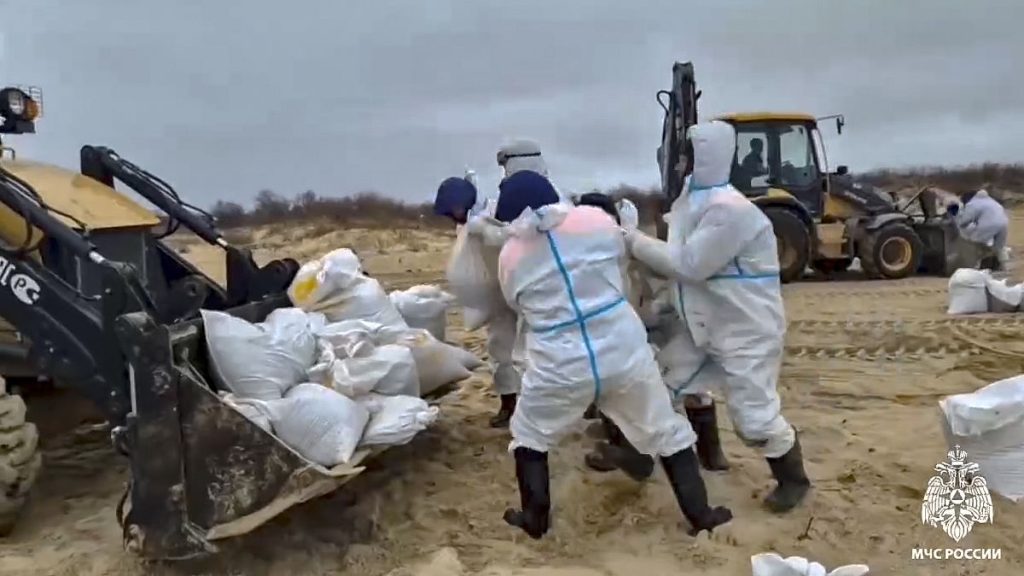An oil spill in the Kerch Strait nearly three weeks ago has resulted in the deaths of at least 32 dolphins in the region. The spill, which occurred 250 kilometers from Sevastopol on the Crimean Peninsula, has had devastating impacts on marine life. The Delfa Dolphin Rescue and Research Centre reported that a total of 61 dead cetaceans, including whales and dolphins, have been recorded since the emergency. The majority of the dead dolphins belonged to the endangered Azov species. The centre stated that most of the cetaceans likely died within the first 10 days after the disaster.
Following the oil spill in the Kerch Strait, regional emergencies were declared in Sevastopol and the Krasnodar region of Russia. Oil was found on four beaches in Sevastopol, prompting local authorities and volunteers to work together to promptly eliminate the contamination. In the Krasnodar region, nearly 7,000 people have been working to clean up the spill, with over 96,000 tons of contaminated sand and soil already removed from the shoreline. It is estimated that up to 200,000 tons of mazut, a heavy, low-quality oil product, may have been contaminated by the spill.
Russian President Vladimir Putin has declared the oil spill in the Kerch Strait an “ecological disaster.” The Kerch Strait is a vital global shipping route, connecting the Sea of Azov to the Black Sea, and has been a point of contention between Russia and Ukraine since the annexation of Crimea in 2014. In 2016, Ukraine accused Russia of illegally trying to seize control of the area, leading to a legal dispute at the Permanent Court of Arbitration. Mykhailo Podolyak, an adviser to Ukrainian President Volodymyr Zelenskyy’s office, described the oil spill as a “large-scale environmental disaster” and called for additional sanctions on Russian tankers involved in the incident.
The oil spill in the Kerch Strait has had significant impacts on marine life in the region, with several dolphins being killed as a result of the contamination. The fuel oil spill from two tankers has led to a devastating loss of life among the cetaceans in the area, particularly impacting the endangered Azov species. Regional emergencies have been declared in Sevastopol and the Krasnodar region of Russia as authorities work to clean up the oil spill. Over 96,000 tons of contaminated sand and soil have already been removed from the shoreline, with efforts ongoing to address the environmental impact of the spill.
The oil spill in the Kerch Strait has raised concerns about the ecological consequences of the incident, with Russian President Vladimir Putin describing it as an “ecological disaster.” The Kerch Strait, a crucial shipping route connecting the Sea of Azov to the Black Sea, has been a point of tension between Russia and Ukraine since the annexation of Crimea. The conflict over control of the region led to a legal dispute at the Permanent Court of Arbitration in 2016. Ukrainian officials have called for additional sanctions on Russian tankers involved in the spill, emphasizing the need for accountability and prevention of future environmental disasters in the region.
The impact of the oil spill in the Kerch Strait has been severe, leading to the deaths of numerous dolphins and posing significant challenges for local authorities in cleaning up the contamination. The spill has raised concerns about the long-term environmental consequences for marine life and ecosystems in the region. Efforts to address the oil spill continue, with thousands of workers involved in cleaning up the shoreline and removing contaminated soil and sand. The incident serves as a stark reminder of the risks associated with oil transportation and the importance of implementing measures to prevent future spills and protect the environment.















